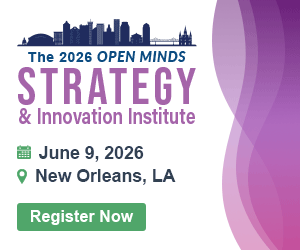Addiction Treatment Services
Addiction is a chronic disease, which causes individuals to seek “reward” from substance-use or other activities whether or not they may cause harm. Addiction treatment has been in the spotlight as payers, policymakers, and health systems struggle to address the opioid crisis and increasing substance-related mortality rates. As a result, the addiction treatment market is shifting—there is expanded coverage for residential treatment, a push towards greater integration and care coordination, and new competitors entering the market—creating new challenges and opportunities for organizations working in addiction treatment.
Editor’s Picks
-
 Minnesota Did Not Comply With Most Internal Control Requirements For Mental Health & Substance Use Disorder Grants
Minnesota Did Not Comply With Most Internal Control Requirements For Mental Health & Substance Use Disorder Grants
-
 Many U.S. Counties Lack A Substance Use Treatment Facility That Offers Medication Assisted Treatment For Alcohol Use Disorder
Many U.S. Counties Lack A Substance Use Treatment Facility That Offers Medication Assisted Treatment For Alcohol Use Disorder
-
 Substance Use Disorder Costing The U.S. Economy $93 Billion
Substance Use Disorder Costing The U.S. Economy $93 Billion
-
 Massachusetts Expands Access To Office-Based Addiction Treatment Through Its Nurse Care Manager Model
Massachusetts Expands Access To Office-Based Addiction Treatment Through Its Nurse Care Manager Model
Latest Resources
- Alliance Health Partners With Promise Recovery Network & Wake County On Recovery Hub In Downtown Raleigh, North Carolina
- Beachcomber IOP Launches Virtual Intensive Outpatient Program To Expand Access To Addiction Treatment In Florida
- Horizon Behavioral Health Awarded $1.1 Million SAMHSA Grant To Expand Substance Use Treatment & Recovery Services In Appomattox County, Virginia
- ACF Allows Title IV-E Funds To Cover MOUD For Parents With OUD
- Hospital Association Of Southern California Behavioral Health Scan Shows Rising Needs & Continued Progress Across The Region
- Nevada Reissues RFP For Specialty Managed Care Plan For Children With Complex Behavioral Health Needs
- Carrum Health & Lyra Health Launch Integrated Specialty Care and Mental Health Solution
- Michigan Rescinds Medicaid Behavioral Health Restructuring RFP Following Court Ruling
- Pennsylvania Awards $2 Million To Centre County To Improve Juvenile Justice Services, Combat Opioid Addiction, Strengthen Programs For Crime Survivors
- Recovery Centers Of America Agrees To Pay $2 Million To Resolve Allegations That It Mishandled Controlled Substances and Provided Inadequate Treatment Services
- Ruling On Region 10 PIHP et al, v. Michigan Department Of Health & Human Services
- COCC Receives $1.3 Million Federal Grant For Behavioral Health Workforce Training
- Empathy Health Technologies Raises $7.6 Million For Relapse Prevention Tool
- 30-Day Median Retention In Opioid Treatment Programs Reached 61% In 2023
- 28% Of Youth Emergency Visits For Behavioral Health Crisis Involved Undisclosed Substance Use

- Georgia Launches Statewide Narcan Initiative For Public Schools
- Moving Crisis Care ‘Upstream’: The Family Service League Case Study
- Behavioral Health Merger & Acquisition Volume Rose More Than 42% In 2025
- Alcohol-Related ED Visit Volume Nearly Doubled Over 20 Years
- Commercial Payers’ Negotiated Reimbursement Rates Vary Across All Levels Of Facility-Based Addiction Treatment Care
To sign-up for bi-weekly Mental Health alerts, you must be signed in to your account.
Government Contract Bidding Opportunities
- Hawaii Seeks Safe Spaces Emergency Shelter For Young Adults On Maui
- New Jersey’s Cumberland County Seeks Deflection & Diversion Strategic Consultant Services
- New Jersey’s Camden County Seeks Community Development Block Grant Social Services Programs & Emergency Solutions Grant Programs
- New York’s Orange County Seeks Nurse Practitioner Services
Government Contract Award Announcements
- Alaska Awards Emergency Medical Services System Evaluation Contract To The Paramedic Foundation
- Ohio Awards Problem Gambling Treatment & Telehealth Service Expansion Contract To Problem Gambling Network Of Ohio
- Texas Awards Inpatient Competency Restoration Program Services Contract To Perimeter Behavioral Hospital Of Garland, LLC dba Perimeter Behavioral Hospital Of Dallas
- New Jersey’s Union County Awards Family Clinic Medical Director Services Contract To Union County Healthcare Associates, LLC
- Hawaii Awards Child Visiting & Family Resource Center Services Contract To Keiki ‘O Ka’Aina Preschool, Inc.
